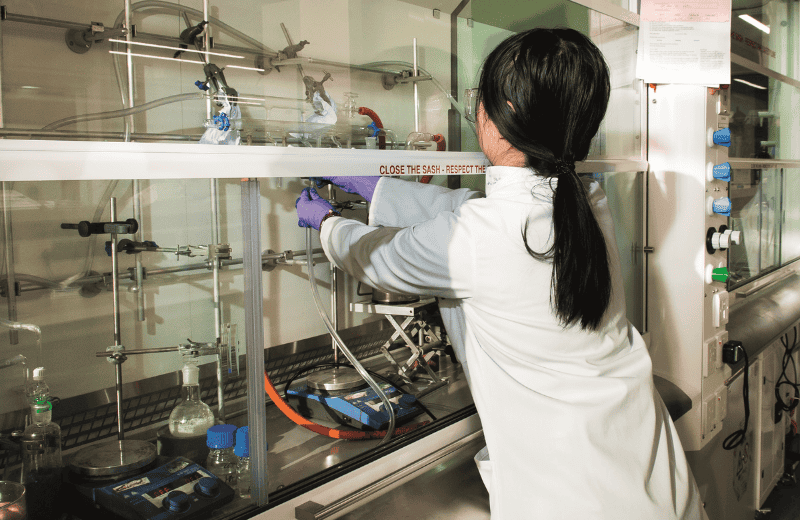Baker Hughes: Seeding big ideas - from pump-priming to strategic partnership
Baker Hughes, a global energy technology company operating in over 120 countries, has built a partnership with the University that shows how early-stage investment can grow into a strategic, multi-disciplinary collaboration tackling global sustainability challenges.
In 2022/23, Professor Xin Tu, Chair in Plasma Catalysis, received pump-priming funding from the University’s Higher Education Innovation Fund (HEIF) to explore plasma-enabled methane cracking - producing CO2- free hydrogen and carbon for cleaner energy.
This successful proof-of-concept project led to a series of Baker Hughes-funded collaborations, including a 42-month PhD studentship and contract research agreements on plasma electrification for sustainable fuel production.

There is no path to net zero without collaboration. Working with the University of Liverpool, we’re developing scalable solutions to drive sustainable progress.
Ian Derbyshire, Engineering & Technology Director at Baker Hughes
From pilot to partnership
In February 2024, the relationship was formalised through a Memorandum of Understanding (MoU) – the first between Baker Hughes and a UK university. The MoU sets the foundation for broader collaboration across advanced materials, energy transition technologies, and sustainability.
Expanding the collaboration
The partnership now spans multiple disciplines, including:
- Green Hydrogen Production
Professors Alex Cowan and Matt Rosseinsky are accelerating the discovery of electrocatalysts for hydrogen generation through a joint project funded by Baker Hughes and the Henry Royce Institute*.
- Direct Air Capture
Professor Anna Slater, Royal Society University Research Fellow and Professor of Chemistry (proleptic), is applying flow chemistry to develop new chemical ligands for carbon capture. The work supports new PhD and postdoctoral roles in 2025, helping train the next generation of scientists.
Impact and future outlook
This partnership exemplifies how small-scale, pump-primed projects can seed transformative, long-term industrial collaborations – advancing clean energy innovation, skills development, and global sustainability.
It’s exciting to work with Baker Hughes to explore how advanced flow chemistry can tackle global energy challenges. Our collaboration on Direct Air Capture not only drives sustainable innovation but also supports the next generation of scientists. Together, we’re developing both the solutions and the skills needed for a more sustainable future.
Professor Anna Slater, Royal Society University Research Fellow and Professor of Chemistry
*The Henry Royce Institute is a partnership of nine leading institutions, including the founding partner, the University of Liverpool.
Get involved
Connect with our teams to explore collaboration in sustainable manufacturing and upcoming CDT opportunities.